When asked to comment on this story about Brain Tumour Research campaigner Helen Clark and her son Bailey we were quoted, and we drew attention to the unspent money remaining after £40 million was made available for allocation to brain tumour researchers in 2018.
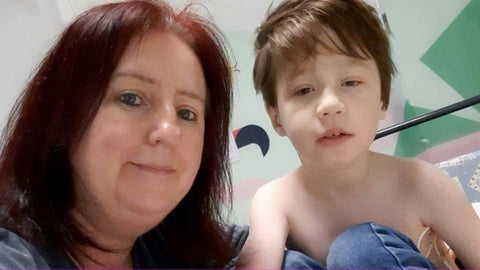
Helen said “"The low level of funding is ridiculous, and it makes me so angry. Much more needs to be done."
In the piece, as would be expected, the Department of Health and Social Care (DHSC) were asked for their viewpoint and the department responded that “since May 2018, the government had spent £33.9m on brain cancer research.”
It is really important that we are all clear on this - In 2018 the Government announced that £40 million was available for brain tumour research deployment via the DHSC and its funding body the National Institute for Health and Care Research (NIHR).
It was confirmed by Health Minister Will Quince in this written answer from July 2023 that at that point, over five years after the original funding announcement, only £10.7 million had been allocated.
This has since been slightly upped to over £11 million.
Early-stage scientific research is not funded by DHSC but funded by the Department for Science, Innovation and Technology through UKRI – UK Research and Innovation and one of its councils the Medical Research Council (MRC).
According to Minister Quince in this written answer from May 2023 the amount spent via this funding body on site specific brain tumour research in the past five years has been £22.3 million (and we have a breakdown of this figure).
Minister Quince at a Westminster brain tumour debate on 9th March said “Since the initial Government announcement of £40 million over five years ago, we have spent £33.9 million on brain cancer research across Government. I am conscious that there is a difference in the two figures (£10.7 million and £33.9 million), but that is because we are combining spending from UK Research and Innovation with the spending of NIHR.”
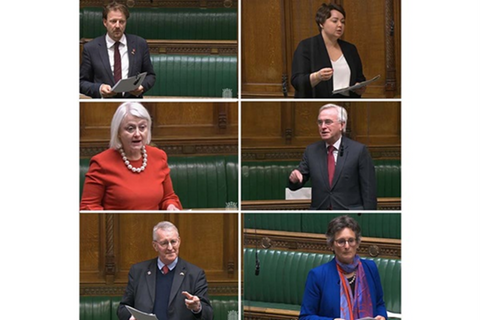
This presents a misleading picture when presented in the BBC piece, and wherever else it might be used, because it is an addition of two different funding streams and not the total spend as related to the original £40 million announcement.
An argument could be made for moving the remainder of the £40 million away from the NIHR, as they have struggled to deploy it fully for whatever reason, over to the MRC, who seem more able to spend brain tumour money.
We don’t believe this to be the desired solution because we want adequate funding across the translational pipeline and this needs more money not moving promised money about.
In fact, any suggestion of exploring the idea of moving research funding money between departments has been met with intransigence.
It is therefore disingenuous to add money from two departments into a total that makes it appear that more of the £40 million has been allocated than is the actual situation.
What is an absolute reality though is that despite brain tumours being the leading cause of cancer deaths in children, brain tumour research was, and sadly remains, woefully underfunded receiving just 1% of the national spend on cancer research in the UK since records began in 2002.
In recent years the annual spend has increased to 3%, because of the role we, all of us, have played in increasing the profile of the disease.
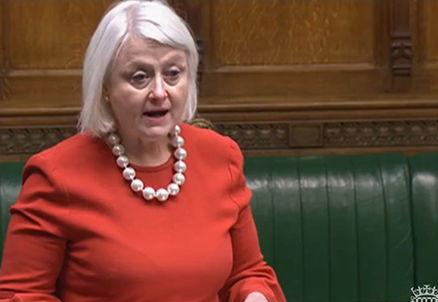
On Wednesday in the House of Commons, Siobhain McDonagh MP used the ten-minute rule, which allows a backbench MP to make the case for a new bill, to introduce a Brain Tumour Bill.
Ms McDonagh, a member of the APPG on Brain Tumours, and who spoke at March’s Brain Tumour Debate, has been driving her brain tumour agenda forward in memory of her sister Margaret, Baroness McDonagh who died in June from a glioblastoma aged 61.
The Bill’s aims are:
- The setting of a target for the number of glioblastoma patients who take part in clinical trials each year;
- The requirement of training for medical oncologists to include training relating to brain cancers;
- A provision that any drug that has been licensed for use on tumours must be trialled on people with brain tumours;
- A further provision is made in relation to neuro-oncology multidisciplinary teams in the NHS, including a requirement that each such team must include a medical oncologist;
- The requirement of manufacturers of drugs licensed to treat tumours to make those drugs available in specified circumstances for clinical trials relating to brain tumours; and for connected purposes.”
We are supportive of the Bill and our Director of Research Policy and Innovation, Dr Karen Noble said; “Siobhain is a passionate and tenacious campaigner and the ambition of her Bill is one that we would definitely sign up to. The route to these outcomes though needs a multi layered approach with planning, infrastructure and stakeholder support to match the strategic aims.”
Ten Minute Rule bills are often used by MPs to voice an opinion on a subject or aspect of existing legislation, they can help raise the profile of an issue and test whether it has support in the House rather than being a serious attempt to get a bill passed.
It is very rare for a 10-minute rule bill to pass into legislation – this has happened only 60 times since 1945.
A group of MPs has now been identified who will support Ms McDonagh’s Bill which will have its second reading at Westminster on Friday 24th November: Tracey Crouch, Greg Smith, Steve Brine, Alistair Carmichael, Sharon Hodgson, Tony Lloyd, Dame Meg Hillier, Clive Betts, Jon Cruddas, Paul Blomfield and Sarah Owen.
However, this current Parliamentary session is expected to end within the next fortnight, ahead of the formal State Opening of a new session on 7th November.
It will then be open to Siobhain (or another MP) to introduce a similar bill in the 2023-24 session of parliament.
You can watch Wednesday’s proceedings from 14:10:44 here.
As part of an overhaul of regulation, there has been a recent announcement by the Medicines and Healthcare products Regulatory Agency (MHRA), of a new streamlined notification scheme for lowest-risk clinical trials.
The scheme will see the time taken by the MHRA to approve the lowest-risk clinical trials reduced by more than 50%.
The scheme is based on that outlined in the MHRA’s clinical trials consultation which was endorsed by 74% of those who responded. It forms a significant part of the regulator’s overhaul of the clinical trials regulation, supporting the government’s ambition for the UK to be one of the best countries in the world to conduct clinical research for patients and researchers.
Initial applications for the lowest-risk Phase 3 and 4 trials will be processed by the MHRA within 14 days instead of the statutory 30 days, provided the sponsor can demonstrate the trial meets the MHRA’s criteria, including by confirming there are no known safety issues with the medicine being investigated. About 20% of UK initial clinical trial applications are expected to be eligible for the scheme. Applications for clinical trial amendments will not be eligible.
We also have news this week of two events that may be of interest to you.
Firstly an Optune multi-professional & patient update day on 12th December (hybrid: in person at Charing Cross or online)
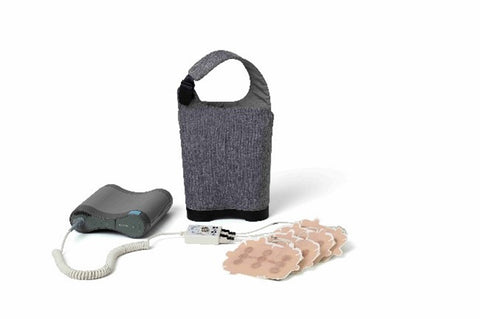
The day is open to all healthcare professionals, patients, carers and staff interested in or using Optune in the UK, irrespective of tumour site, routine care or clinical trial status and will cover a range of topics, including:
- New and updated evidence on Optune
- Current and future clinical trials
- Practical aspects of using Optune
- Real-world data on Optune use
- Patient and carer views
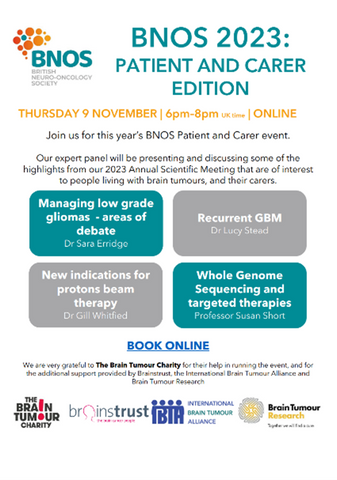
Secondly and following the success of their Annual Scientific Meeting held in Manchester this July (where we were a sponsor), BNOS are delighted to be holding an online patient and carer event to discuss some of the highlights.
The aim is to present a selection of topics from the conference that are of interest to people living with brain tumours and their carers.
The format will be 10-minute presentations, followed by a discussion with a panel of experts and questions from the audience.
Places are free but numbers are limited.
More details and registration can be found here
However, many millions of pounds are needed and lobbied for, however many times we are in the media and have politicians raising awareness ultimately, and always, it is the patient and their families who are at the heart of all that we do.
They inform everything and are at the top of any organisation chart at Brain Tumour Research.
Any plan we make patients and families are first to be recorded as the key stakeholders.
We are listening to you and then together we amplify your voice.
It is this coalescence of messaging from our member charities, our fundraising groups, our fundraisers, activists, campaigners and those of you who have been flung into this world and are looking for hope and proactivity, which makes us the leading voice of the brain tumour community.
It is why our #BrainTumourPetition has nearly 70,000 signatures.
Always be assured that you are why we do what we do.
Hugh and Thomas
Related Reading

